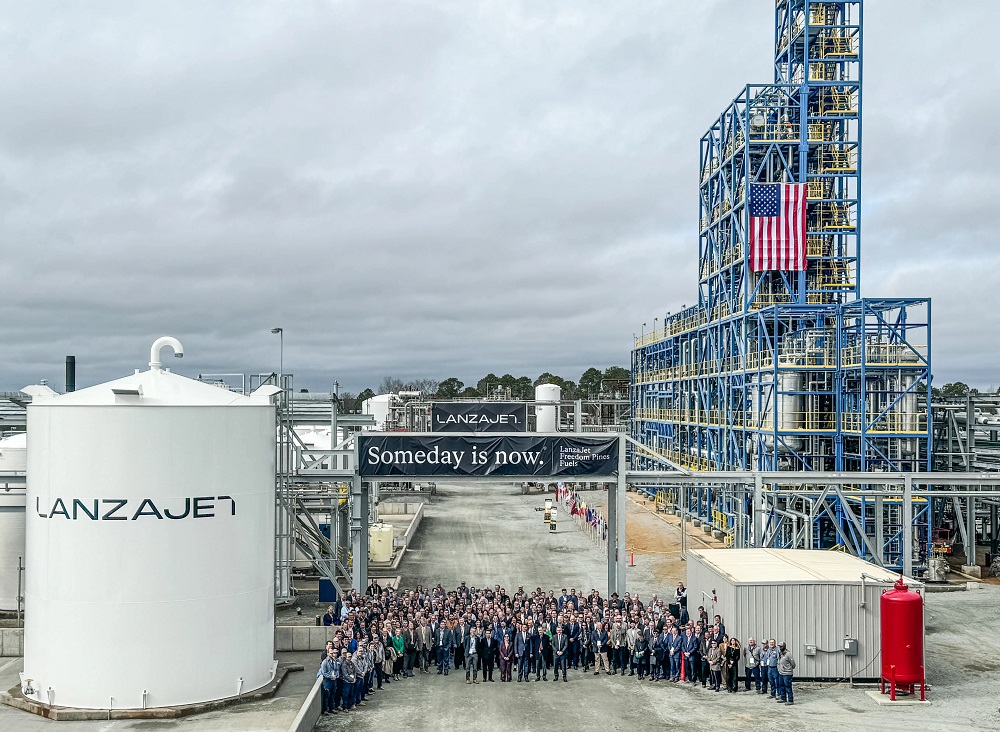The world’s first ethanol-to-sustainable aviation fuel (SAF) plant opened in the U.S. takes the world one step closer to a greener future.
On Jan. 24, Illinois-based Biotechnology Innovation Organization (BIO) member LanzaJet announced the opening of the world’s first production facility to convert plant-based and low-carbon ethanol into SAF. The Freedom Pines Fuels plant, located in Soperton, Georgia, is expected to produce 10 million gallons of SAF and renewable diesel annually.
What’s so exciting about SAF?
Sustainable aviation fuels used in commercial flights can help reduce carbon emissions by 70%, but currently, SAFs only make up less than 0.1% of the jet fuels used on a global scale.
Though current aviation regulations only allow 50% SAF mix for commercial flights, companies with a “greener outlook” are pushing the envelope.
Last year in November, Virgin Atlantic became the first airline to successfully fly a commercial plane on 100% SAF. Flight100 flew from London Heathrow to New York JFK with no passengers aboard.
Unlike traditional jet fuels, sustainable aviation fuels are carbon neutral as they only emit carbon captured by organic materials during their lifetime. Replacing traditional fuels with SAF “could reduce commercial aviation emissions by an estimated 80%,” BIO CEO Rachel King wrote last year in The Seattle Times.
In addition to manufacturing SAFs from organic ethanol, LanzaJet is working on reducing both carbon emissions and waste.
“Produced from a variety of low-carbon, sustainable feedstocks such as agricultural waste, municipal solid waste, energy crops, or carbon captured from industrial processes or ambient air, SAF is a like-kind replacement for traditional jet fuel and is compatible with existing aircraft and infrastructure,” the company said.
The bigger picture
Not only are SAFs beneficial for the environment—they’re good for the economy, too.
The plant’s sustainable aviation fuels and renewable diesel will be using ethanol made from farm waste and corn, this decarbonizing milestone can open new potentials and markets for farmers and corn growers.
“LanzaJet is proving that SAF from ethanol is here today. Now it is up to us to produce a qualifying ethanol feedstock. Iowans need to realize that CCS is the key to the new market. Regardless of individual views on carbon policy, our business is making the products our customers want and right now we can’t do that,” said Iowa Renewable Fuels Association executive director Monte Shaw who attended the plant’s grand opening.
However, as the biofuel infrastructure expands so will the demand for these so-called “energy crops.”
“As we transition to SAF, this will not only create new climate-smart commodity markets for American producers, but it will also help American companies such as LanzaJet corner the market of a valuable, emerging industry,” U.S. Agriculture Secretary Tom Vilsack said in a statement.




